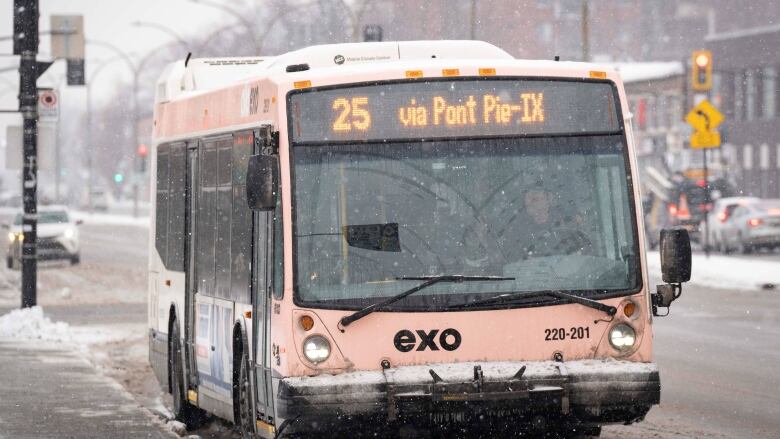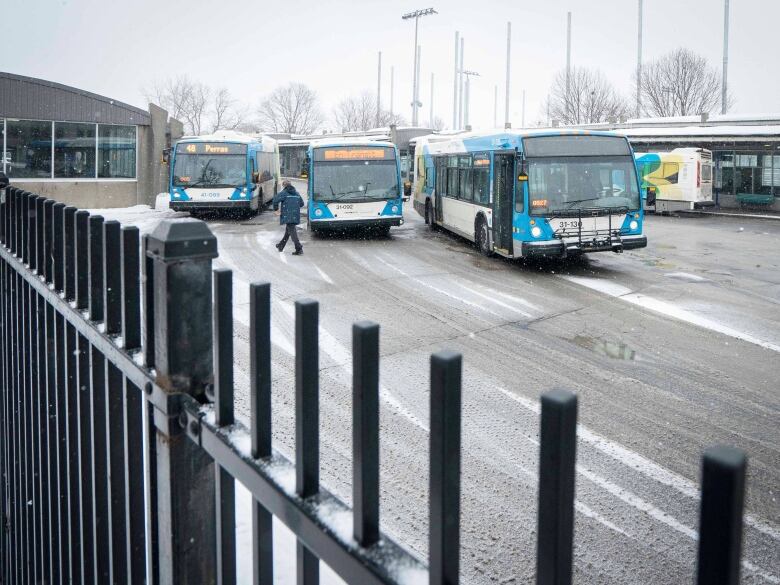Montreal transit officials consider consolidating some bus services to reduce costs
ARTM looking to pool services between its 4 partners for buses that run on same routes

The regional transit planning agency for the greater Montreal area, the ARTM, is considering pooling some services offered by its operators in hopes ofreducing its costs.
Benot Gendron, the general director of the ARTM, confirmed Thursday that he has already presented his "roadmap" to the heads of the main public transit operators in Montreal and off-island: the Socit de transport de Montral (STM), the Socit de transport de Laval (STL), the Rseau de transport de Longueuil (RTL) and Exo.
Gendron said these networks currently "operate in isolation."
"What we want to look at is how we can pool certain services that run on the same routes within the territory and ensure that we improve the frequency of bus service for our clients," he said in an interview with Radio-Canada's Tout un matin.
For example, some buses leaving from the northern suburbs to go downtown could stop en route to pick up riders in Laval. Similarly, the STL could also make its fleet available to Montrealers, and vice versa, Gendron said.
"We're saying that there may be a way to pool [the resources of the various operators] so that we can offer a better service to citizens at a lower cost," he said.

The ARTM has been struggling with major financial problems since the beginning of the COVID-19 pandemic, which caused ridership to plummet and spurred the popularity of teleworking. It has been running deficits ever since, covered each year by the Quebec government.
Its shortfall is estimated at about $500 million for 2023, an amount it hopes to see wiped off the books on March 21, when Finance Minister Eric Girard tables his next budget.
Gendron said the goal of the ARTM's initiative is to"improve the system's performance," boost ridership and "find funding" to balance the organization's finances, he said.
In addition to pooling certain services, the organization is also considering the possibility of offering more connections within the suburbs a need that, according to the ARTM, has increased in recent years.
The ARTM's move comes after the STM presented an $18-million spending reduction plan last week. However, it is still some $60 million short of balancing its budget for 2023. Exo, for its part, estimates its anticipated deficit at $29 million.
These organizations, which made their voices heard during the Ministry of Finance'spre-budget consultations, are now hoping that the finance ministerwill hear their pleas for help once more.
Suggestion well received in Montreal
The STM and Mayor Valrie Plante's administration have said they "welcome the possibility of exploring the pooling of resources and optimization of services on a metropolitan scale."
The Plante administration, while reiterating that it is "imperative to seek new revenues" for the transit authorities, said it was confident that the mayor's calls to Girard were heard during the pre-budget consultations.
"It is essential to review public transit financing methods with permanent solutions. We can no longer go piecemeal with emergency assistance, otherwise the quality of services will inevitably be affected," said Plante.
The STM added that the ARTM must address the fundamental issues "in order to find sustainable and indexed sources of funding for public transit companies," it said in an email to Radio-Canada.
"The current approach will only partially meet the objectives we have set for ourselves in order to resolve the structural deficit of public transit companies."
Based on a report by Radio-Canada












_(720p).jpg)


 OFFICIAL HD MUSIC VIDEO.jpg)
.jpg)



























































































